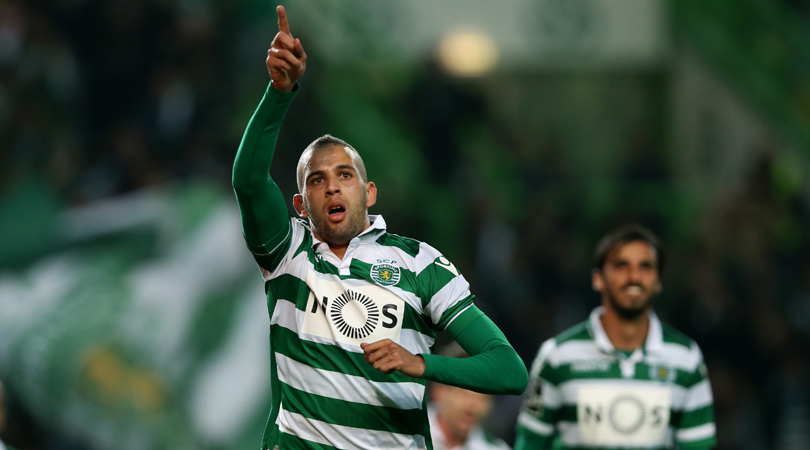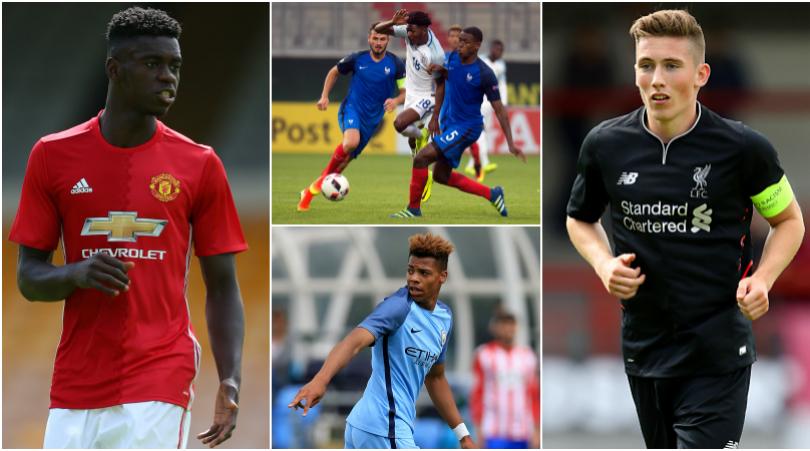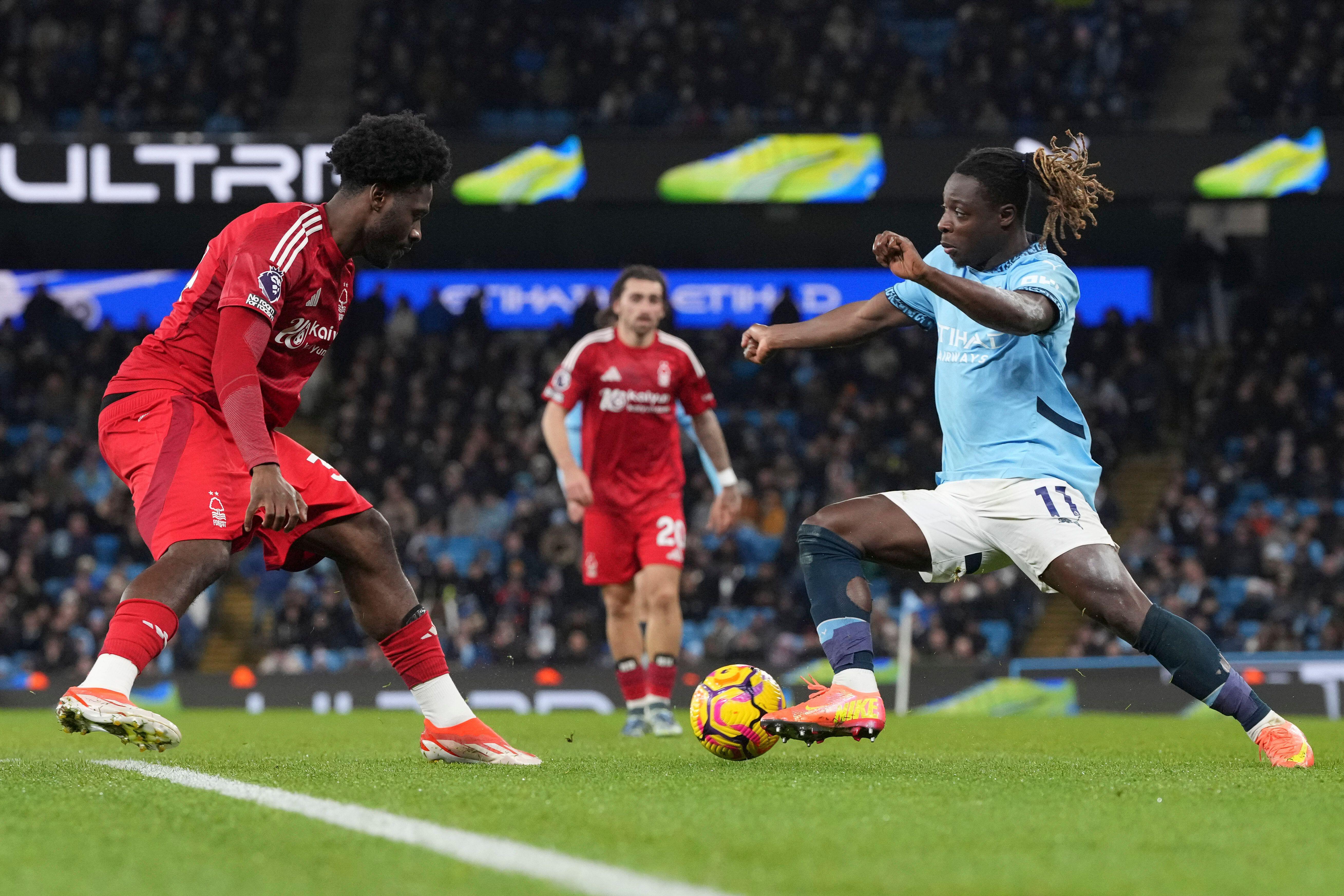Where did it all go wrong for Jack Wilshere?
The 24-year-old Arsenal midfielder’s loan move to Bournemouth caught everyone off guard, but perhaps it’s been a while coming. Alex Hess assesses the situation…
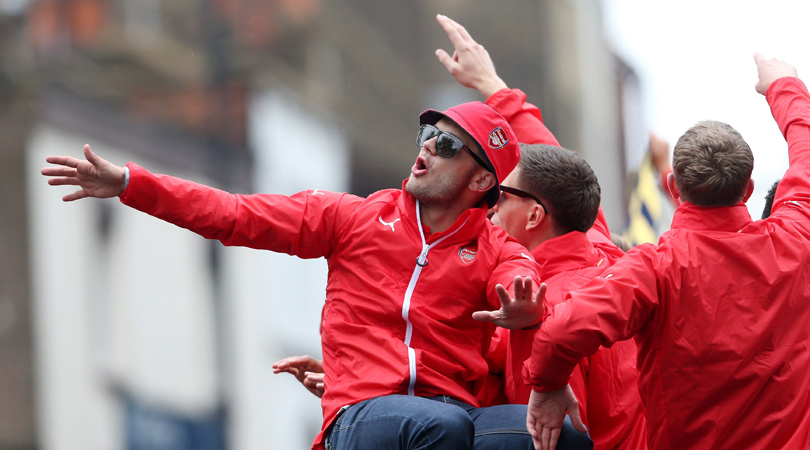
For once, the event that loves to boast about its unpredictability actually had a point. Deadline day was marked by a number of transfer market curveballs, none more unexpected than the move of Jack Wilshere – Arsenal’s perennial great white hope – on loan to AFC Bournemouth.
It’s been a tough couple of years for the midfielder and, while a season on loan for a 24-year-old hardly equates to a career teetering on the brink, the message from Arsene Wenger is clear: for now, Arsenal can get by without him. It’s not a party line Wilshere has encountered before.
Good luck, August 31, 2016
Kevin Keegan said of a player’s path to greatness that “everyone needs a bit of rejection”. This move may give Wilshere that. But for all its potentially revitalising qualities, the deal does give legitimate cause to ask exactly how it came to be that the man who’s spent the best part of a decade earmarked as England’s long-awaited heir to Paul Gascoigne has seen his status plummet this far.
Long-term drain
Has it plummeted, though, or has it just slowly declined? Because the oddest thing about Wilshere’s travails is how it’s all, simultaneously, seemed incredibly gradual and very, very sudden.
On the one hand, he has started a total of 10 league games over the past two years. In the 2011/12 season, the year after his breakout campaign, he didn’t manage a single second on the pitch. His difficulties are the definition of ‘long-term’.
Suddenly, with the season three weeks old, he finds himself in an unsettlingly similar position to January 2010, when he joined Bolton as an 18-year-old
Yet it was just six days ago that he spent the final stages of Arsenal’s swaggering win at Vicarage Road scampering around the centre of midfield, getting some much-needed mileage on the clock, and banishing fears of another long lay-off to the back of everyone’s mind.
Get FourFourTwo Newsletter
The best features, fun and footballing quizzes, straight to your inbox every week.
A few weeks before that, he was named in Roy Hodgson’s squad for the Euros despite having sat out last season in its entirety, his status as “a special player” offering him special dispensation in the eyes of the England boss. He appeared in three of England’s four fixtures at the tournament, too – a feat which may not have done a great deal for his prestige as a footballer but went some way to dispelling the fundamental doubt over him: his capacity to make it onto the pitch in the first place.
Before the Euros, Wilshere was declaring his injury issues as a thing of the past: “I feel fit and ready. Arsene will be watching so it’s down to me to show him what I can do.” After it, he was talking up Arsenal as potential champions. After a year of misery, a light had appeared at the end of the tunnel.
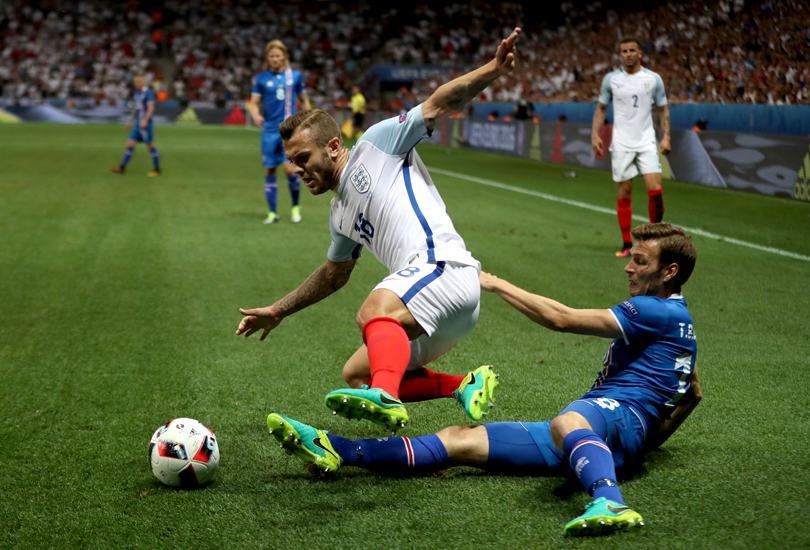
Yet suddenly, with the season three weeks old, he finds himself in an unsettlingly similar position to January 2010, when he joined Bolton as an 18-year-old: loaned out to a lower-mid-table club in a bid to ready him for first-team duties with the league’s big boys. That move invigorated Wilshere’s career in the manner intended, as might this one. But it would take a highly dubious leap of logic to mark the six-and-a-half years since as anything other than stagnation at best, regression at worst.
Wilshere’s departure is only temporary but it should be worrying that, for all Wenger’s hesitancy in the transfer market over the years, he can be generally relied on to know when to let a player go.
SNAPSHOT: From arrival to signing, is an player for the season! August 31, 2016
Curse of the wonderkid
It seems some time ago now that The Guardian, reporting on a pre-season friendly from 2010, referred glowingly to an 18-year-old Wilshere as “showing a level of control and composure that defied belief given his youth … There can be no doubting the potential of the player.”
Unrealised potential, across all sports, is a fascinating phenomenon. The temptation, when we see it happen from afar, is to mark it down to one easily identifiable cause or other.
In football, a wonderkid’s squandered potential tends to be assigned to a small number of causes. There are those, like Michael Owen or Harry Kewell, who fall victim to injury; the ones whose off-field habits collide damagingly with a potentially glittering career (think Michael Johnson, Lee Sharpe or Gascoigne himself); and those who are given the catch-all diagnosis of ‘attitude problem’, among whom we can count Ravel Morrison, Mario Balotelli or Hatem Ben Arfa.
Sometimes, as with some of the above names, the cause-and-effect process is as straightforward as it seems. But there are countless other cases where it’s far less obvious why a player who was light years ahead of their peers as a teenager doesn’t remain that way as their age ticks on. For every Alan Shearer or Raheem Sterling, there’s a dozen – Freddy Adu, Josh McEachran, John Bostock – whose careers fail to live up to their early promise without one clear reason.
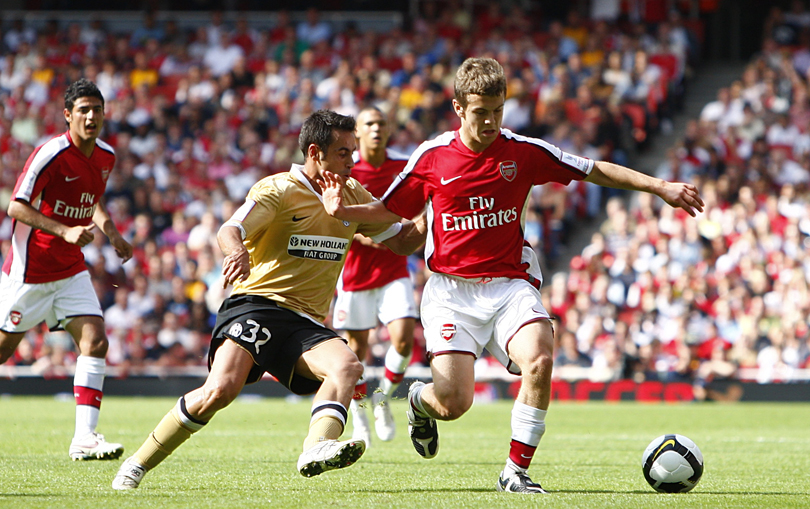
Wilshere, who has played at two major tournaments and won two major trophies before his 25th birthday, is a far cry from those three in terms of unfulfilled promise. But there’s also little doubt that the hopes many had for him when he burst blisteringly onto the scene as a fleet-footed kid are yet to be realised. In terms of why exactly that’s the case, he falls rather awkwardly in the centre of the Venn diagram.
Stacked indiscretions
The Guardian, reporting on a pre-season friendly from 2010, referred glowingly to an 18-year-old Wilshere as 'showing a level of control and composure that defied belief given his youth'
Clearly injuries have been his main hindrance. It’s the reason two seasons have been scratched off his career by his mid-20s. The 154 senior fixtures injury has apparently ruled him out of is almost exactly equal to the 157 appearances he’s made for Arsenal during the same time. It’s a hell of a statistic, and the knock-on effect of such a relentlessly disrupted rhythm has surely hampered him even when he has made it onto the pitch injury free.
Injuries are debilitating at the time, but they can have inhibiting after-effects, too – especially for a player who has built much of his game around the capacity to step on the gas and explode past opponents through the centre of the pitch. It’s no way for a player to spend his formative years.
But that may not be the only factor at play. Because while it’s fair and proper to write off the vast majority of his various off-field ‘controversies’ as faux-outrage whipped up by a hand-wringing press, there’s perhaps a sliver of truth in there, too.
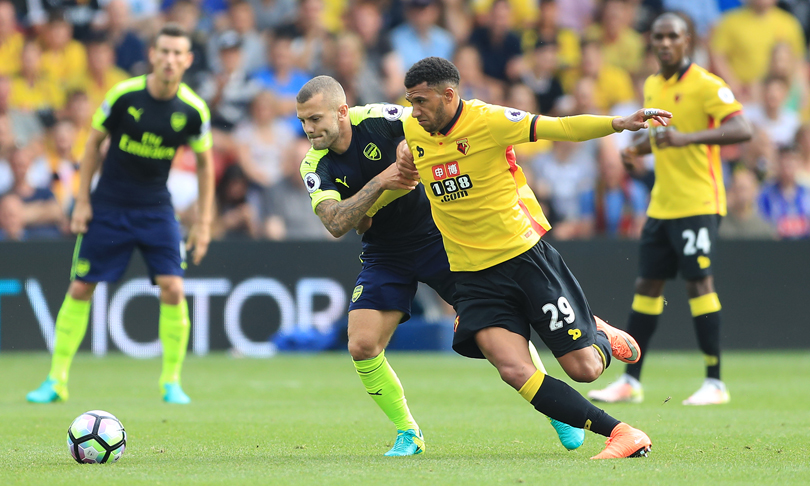
In other words: enjoying the odd cigarette is no great shame, nor does getting in a late-night scrape mark someone out as anything other than young, male and drunk; but repeatedly doing so, having been called out each previous time, doesn’t speak to the sort of maturity and focus needed to overcome the obstacles that stand between Wilshere and a glittering, injury-free career. (Though if that sounds like conjecture, it’s because it is.)
Reality meets unpredictability
Even together, though, the ‘injury’ and ‘attitude’ tags don’t quite seem to account for Wilshere’s failure to properly build on the talent that was clear for all to see at such a young age – and which, it’s important to say, is still very much there now. It’s hard to recall a time, even during his three relatively injury-free seasons, when he consistently dominated games from the heart of midfield.
He famously starred against an all-conquering Barcelona back in 2011, but since then it’s not easy to recall a truly towering performance against top opposition. There are precious few to pick from.
As recently as last year, Xavi, a man who knows a thing or two about midfield play, referred to Wilshere as “the future of English football”. While that was certainly high praise, it was equally telling that Xavi spoke of the future rather than the present. It’s long been Wilshere’s curse.
For now, he serves as a reminder of an inherent unpredictability that underlies all sport: that great potential doesn’t always translate to elite-level achievement, at least not straightforwardly and not without hurdles: a flipside to instances like Marcus Rashford, where a player who’s been marked out as an extravagantly gifted superstar by few can establish himself as exactly that.
And yet this same rule can be aimed the other way, too. If Wilshere’s career has demonstrated anything so far, it’s the futility of prediction and expectation – something to bear in mind for anyone sounding the death knells on the 24-year-old’s career just yet.
